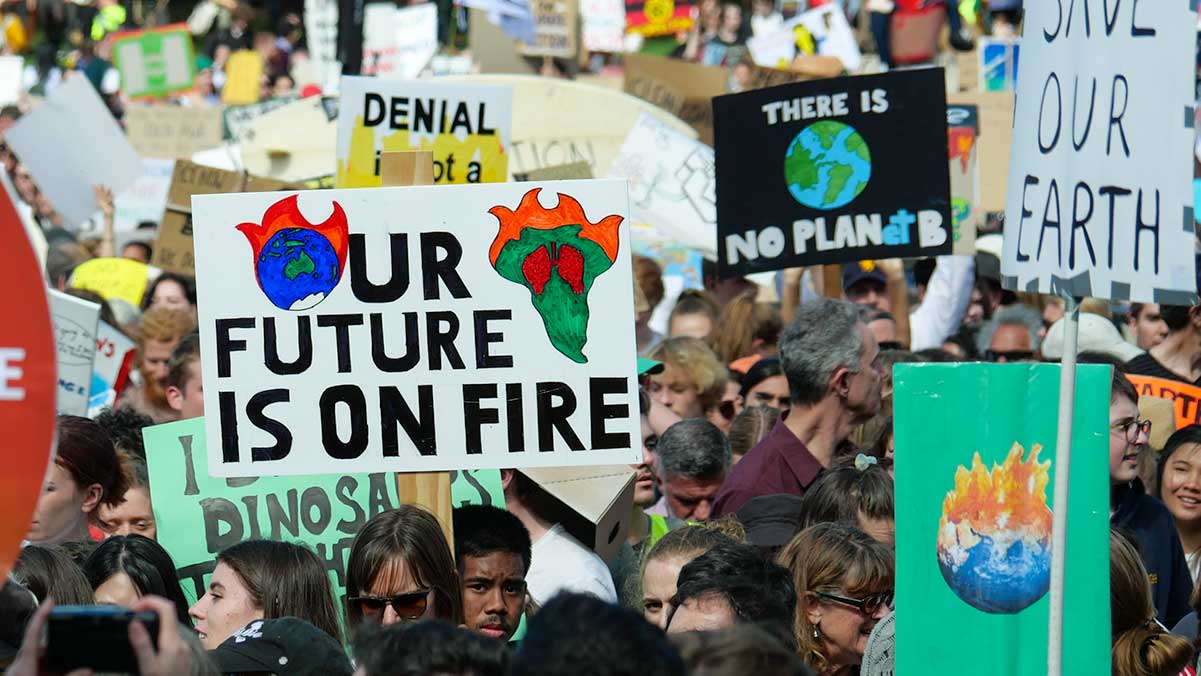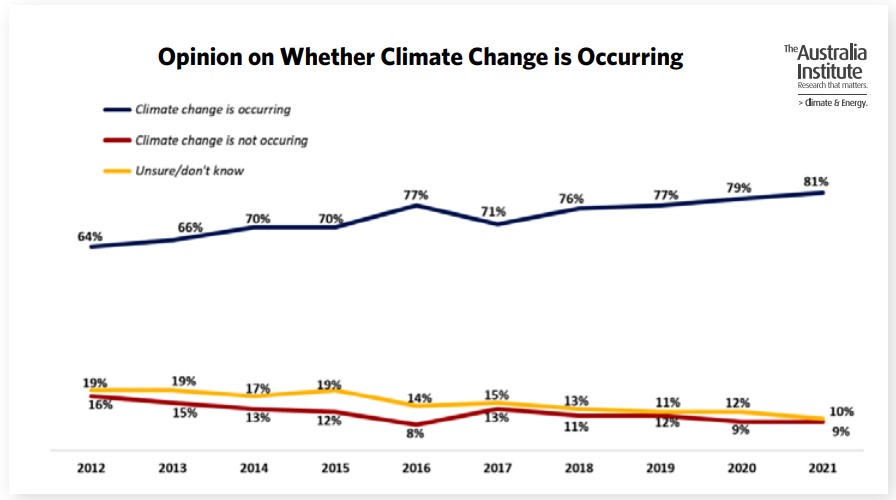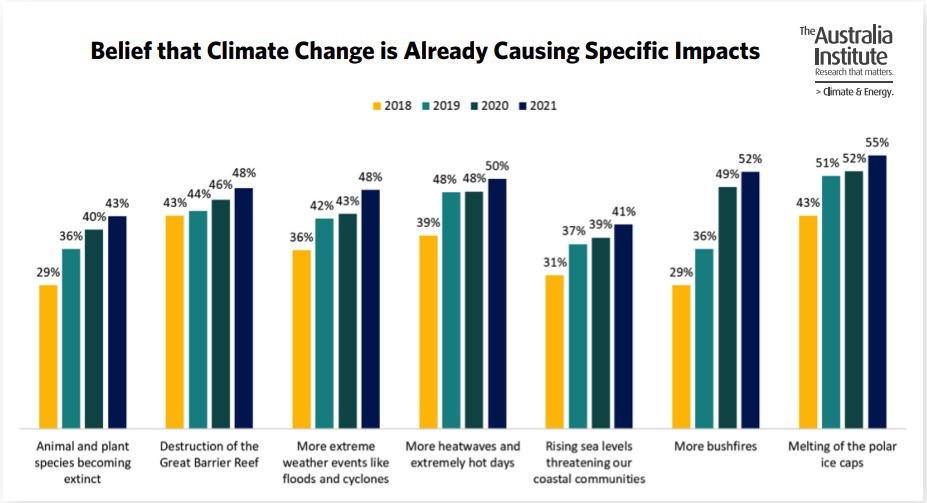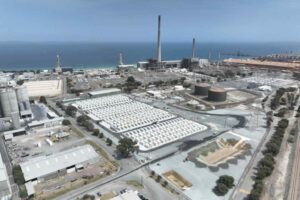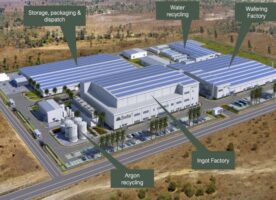Australians’ concern about the impacts of climate change and support for stronger action to cut emissions has reached an all-time high, new polling has shown.
On Wednesday, progressive think tanks The Australia Institute published its latest Climate of the Nation report, a regular survey that tracks Australian opinions on climate change, clean energy and the future of fossil fuels.
The latest report finds concern around the impacts of climate change has surged to all-time highs, with 81 per cent of Australians – the highest level since opinions were first tracked in 2012 – now accept climate change is occurring, with just 10 per cent saying they remain uncertain.
More than four out of five Australians (82 per cent) say they would support the phase-out of coal-fired power stations, and 66 per cent say they would support governments banning the creation of new coal mines, reflecting a growing acceptance that coal use must decline to cut greenhouse gas emissions.
Australians appear to have overwhelmingly rejected the Morrison government’s ‘gas led recovery’ to the Covid-19 pandemic – with just 12 per cent saying they prefer investments in gas as part of Australia’s economic recovery, compared to 63 per cent who said investment should be directed towards renewable energy projects.
The Australia Institute’s climate and energy director, Richie Merzian, says the polling delivers a timely message for the Morrison government ahead of the COP26 climate talks in Glasgow.
“There is a shift in how Australians see bold climate action, with three in four Australians agreeing it will bring opportunities for new jobs and investments. The majority of Australians want the Federal Government to move now on decisive climate action, rather than wait for other countries to act,” Merzian said.
The survey found that Australians significantly overestimated the value of the coal and gas industries to the Australian economy and the proportion of the Australian workforce employed in each sector, providing an insight into the impacts of fossil fuel lobbying efforts.
According to the survey, Australians, on average, said they perceived the coal and gas industries employed 9.2 and 9.8 per cent of the Australian workforce, respectively. However, the coal sector employs just 0.4 per cent of the workforce, while gas employs just 0.2 per cent.
The results reflect the disproportionate influence the fossil fuel industry has over Australian energy and climate discourse.
“Australians have an over-inflated view of the coal and fossil gas sector, when it comes to jobs and tax income,” Merzian said.
“Yet even with this outsized view of the role of the fossil fuel industry in the Australian economy, there is extraordinarily little support for any ‘gas-fired recovery’ and increasing majority support for further renewable power investment.”
The poll, conducted by YouGov and surveyed the views of 2,626 Australians, found that concerns around the impacts of climate change had reached record highs.
A majority of Australians said that they believe that global warming was already contributing to an increase in heatwaves and extremely hot days, was causing more bushfires and contributing to the melting of the polar ice caps.
“There is an increased awareness of the causes and impacts amongst Australians and increased consensus that climate change consequences will affect the way we live. A growing cohort of Australians believe we are feeling the impacts of climate change right now,” the report says.
The survey found that 75 per cent of Australians were concerned about climate change – with the portion of Australians saying they were ‘very concerned’ rising to a record high of 40 per cent.
The prospect of more extreme weather, including flooding, drought and bushfires, and the loss of animal and plant species through extinction, were the main drivers of climate concern amongst Australians.
Federal Labor spokesperson for climate and energy, Chris Bowen, said the results of the report showed the degree to which Australians now expected political leaders to show leadership in their response to climate change.
“The needle has shifted in the public debate around climate change. Morrison has spent his time as Treasurer and Prime Minister developing slogans instead of policy,” Bowen said.
“He’s always too little too late, and it’s Australians that bear the brunt through higher power bills and less new energy investment. It’s a global race to become a renewable energy superpower – it’s clear Australians are on board – it’s past time for the Government to join them.”
“Families and households can save thousands in a more renewable economy. This survey makes it clear Australians want to seize those benefits through more affordable clean energy in our grid and our households, and policies to catch Australia up on electric vehicles,” Bowen added.

